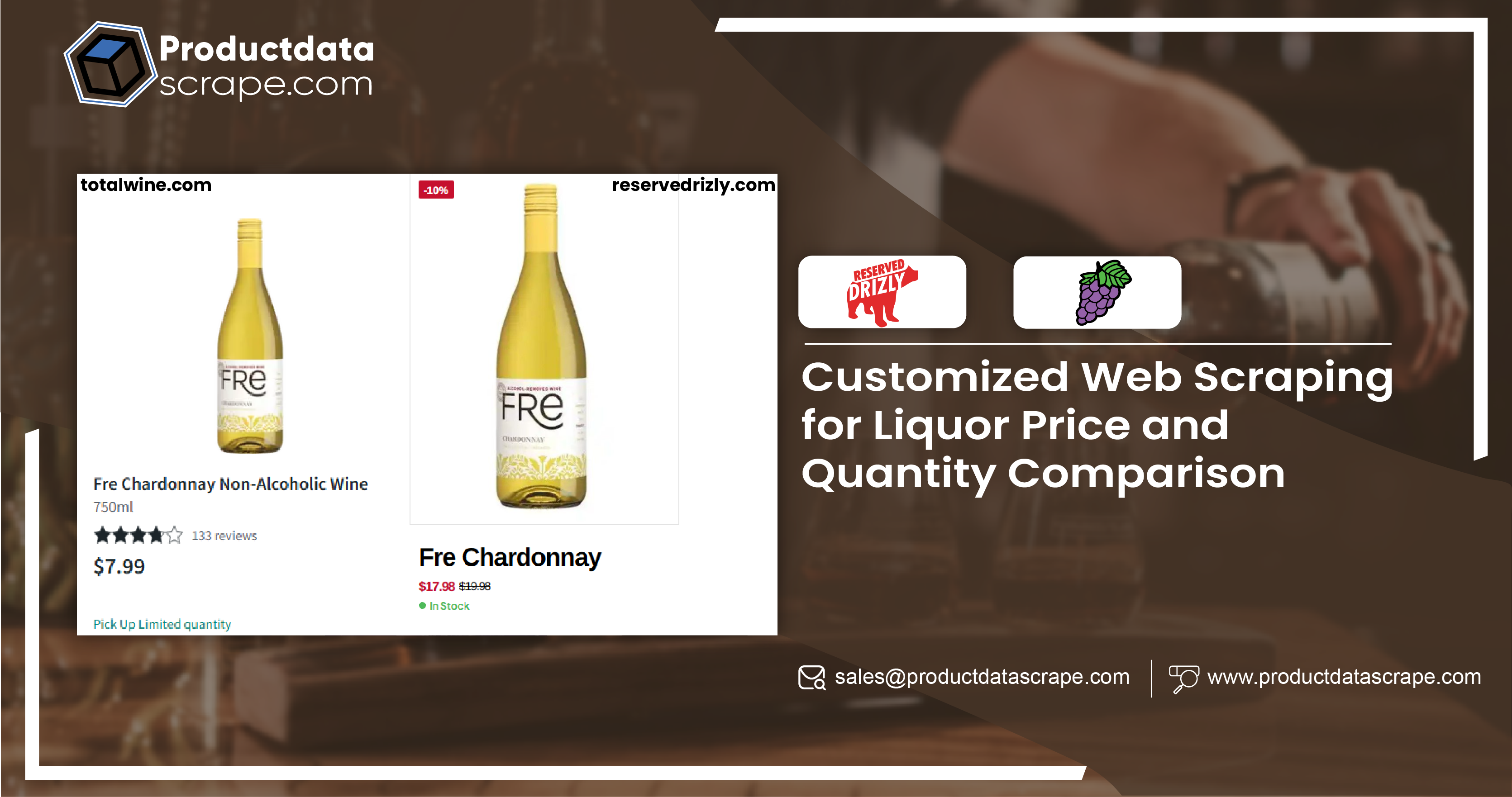
In the ever-evolving world of e-commerce, businesses continually seek ways to gain a competitive edge. One of the most effective strategies in today's digital marketplace is leveraging Customized Web Scraping for Liquor Price and Quantity Comparison to gather and analyze product data from various websites. Certain manufacturers or sellers list specific products on their own websites that are unavailable on other platforms. This strategy helps them maintain exclusive control over product distribution, reach targeted customers, and potentially create a unique market niche. By offering exclusive products, they can differentiate themselves from competitors and drive traffic to their websites. In the case of liquor sales, web scraping has proven to be a powerful tool for comparing prices and quantities across different platforms, allowing consumers and businesses alike to make informed decisions. However, it is not uncommon to encounter discrepancies in prices and quantities when comparing liquor offerings across different e-commerce platforms. This article explores the challenges of varying liquor prices and quantities, mainly through platforms like Reserved Drizly and Total Wine, and highlights the role of Alcohol Product Price and Quantity Comparison Scraping in addressing these discrepancies.
Understanding the Liquor Price and Quantity Variability
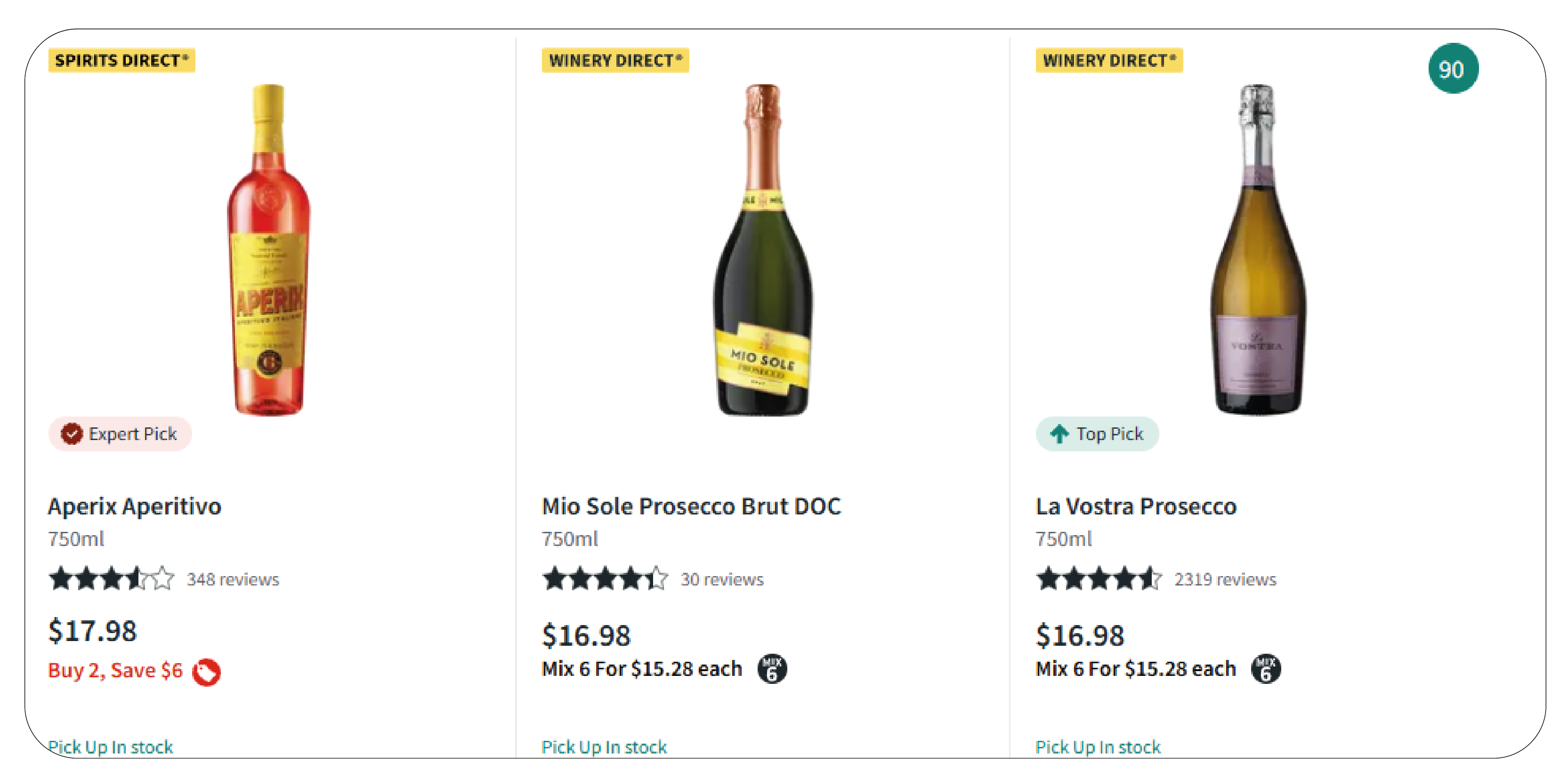
When it comes to online liquor shopping, consumers expect convenience and consistency. However, they often find wide variations in price and quantity across different online liquor stores. The same liquor bottle might be sold for different prices on competing websites, and the availability of specific bottle sizes can also differ. These discrepancies can frustrate consumers, especially when trying to find the best deal or compare offerings across various platforms.
Price Discrepancy: Why Does it Occur?
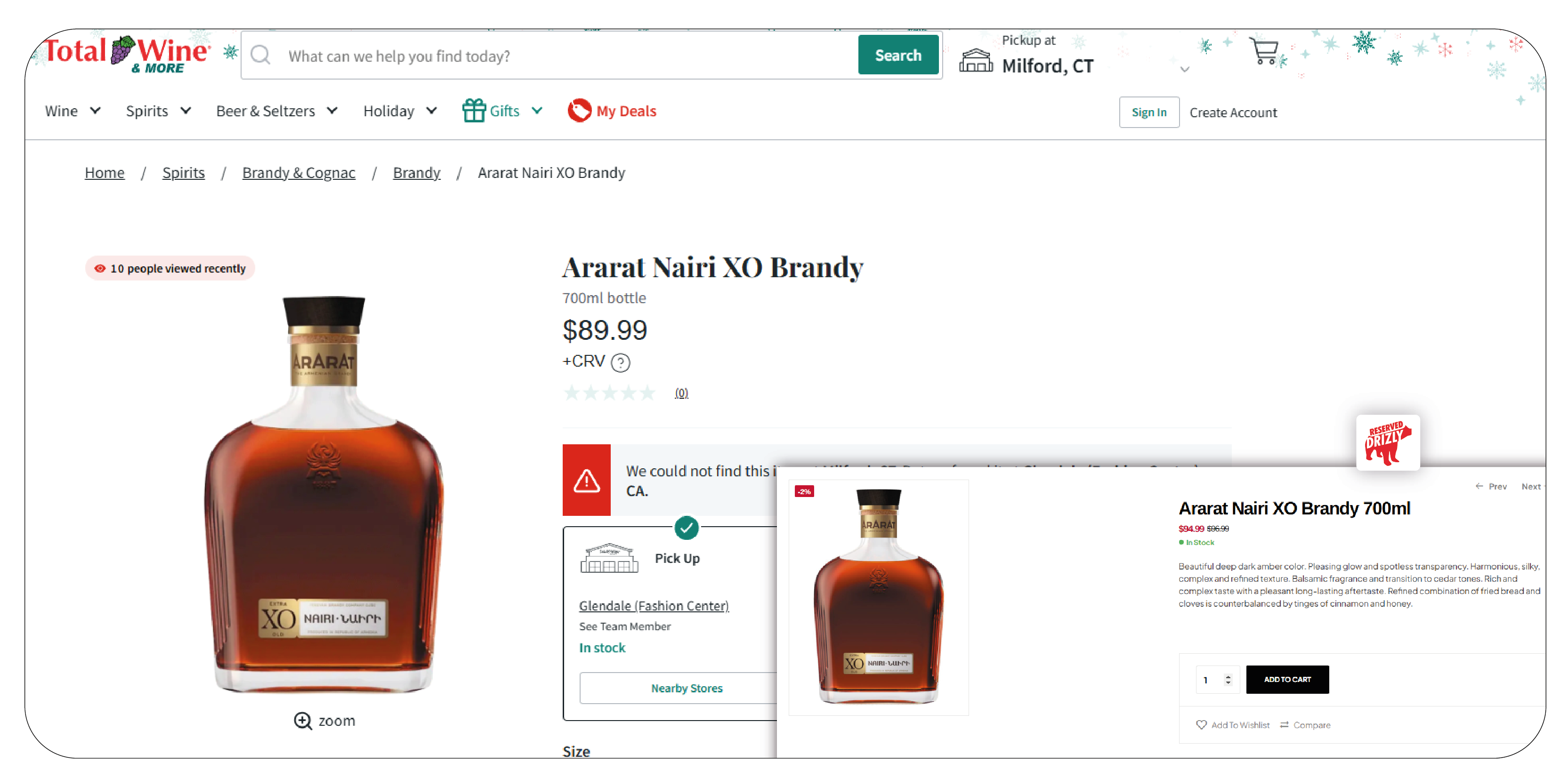
Several factors contribute to the price differences between liquor stores. These include:
1. Promotions and Discounts: Different websites often run special promotions, seasonal sales, or discount offers that influence the price of a bottle of liquor. For example, a particular whiskey might be discounted on one site for a limited time, making the price lower than on another platform where no such discount is offered. Businesses can Extract Liquor Product Data for Competitive Price and Quantity Analysis to track these fluctuations across multiple sites.
2. Regional Variations: Liquor prices can also vary based on geographic location due to regional taxes, shipping costs, and supply-demand fluctuations. A bottle of bourbon in a state with lower alcohol taxes may be significantly cheaper than the same bottle in a state with higher taxes. This highlights the importance of Alcohol Product Pricing and Volume Data Extraction to monitor and adjust pricing strategies based on regional variations.
3. Retailer Markups: Online liquor stores have different pricing strategies. Some may use higher markups to cover operational costs, while others offer lower prices to remain competitive. Additionally, platforms that provide fast delivery or on-demand services may charge more for convenience, which affects the price. Utilizing a Customizable Alcohol Data Scraping Service can help businesses identify these differences and adjust their pricing models accordingly.
4. Quantity and Packaging Differences: Sometimes, the size or packaging of the liquor bottle changes across platforms. A 750ml bottle might be priced differently on one website than a 1L bottle sold on another platform. The same product, but in different quantities, can also lead to price discrepancies, making it difficult for consumers to compare prices directly. To address this, businesses can implement Real-Time Alcohol Price and Quantity Web Scraping to monitor and compare these variations across different platforms instantly.
Quantity Discrepancy: Why Does it Occur?
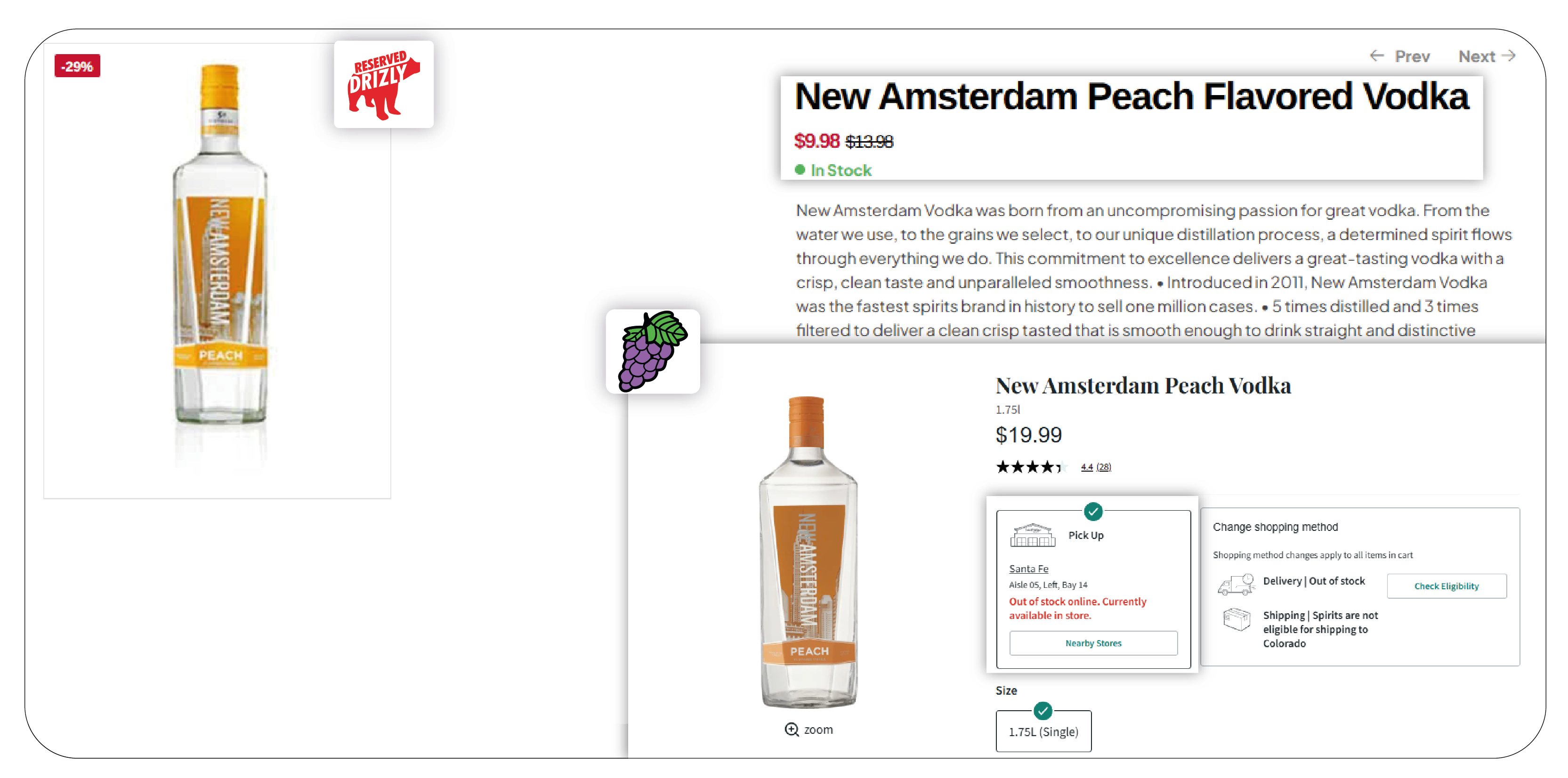
While price discrepancies are more widely discussed, variations in quantity can also complicate price comparisons between liquor websites. These discrepancies typically arise due to the following:
1. Availability and Stock Levels: Online liquor stores often have varying stock levels. One store might have limited quantities of a specific product, while another might have ample supply. This can influence both the price and the perceived value of a product. When a store has only a few bottles left in stock, they may raise the price to create a sense of urgency. To handle such discrepancies, Personalized Alcohol Product Data Scraping can be used to track stock levels and adjust pricing strategies accordingly.
2. Product Bundles and Packaging: Liquor stores sometimes sell products in bundled packages or gift sets. A bottle of whiskey might be sold with a branded glass or in special edition packaging, which could influence its price and the quantity listed. This packaging and bundling may not be available on other websites, leading to confusion when comparing product offerings. Custom Alcohol Data Collection for Price Comparison can help businesses monitor these variations and ensure accurate comparisons across platforms.
3. Location-Specific Availability: Different websites often serve different regions or localities, and this geographic variation can lead to discrepancies in product availability. Some regions may have exclusive products, limited editions, or specific bottle sizes that others do not. As a result, consumers may need help finding the same product at the same price point across different platforms. Reserved Drizly and Total Wine Liquor Data Extraction can be leveraged to track product availability and pricing differences in various regions, providing a clearer understanding of where the best deals can be found.
Case Study: Price and Quantity Comparison Between Reserved Drizly and Total Wine
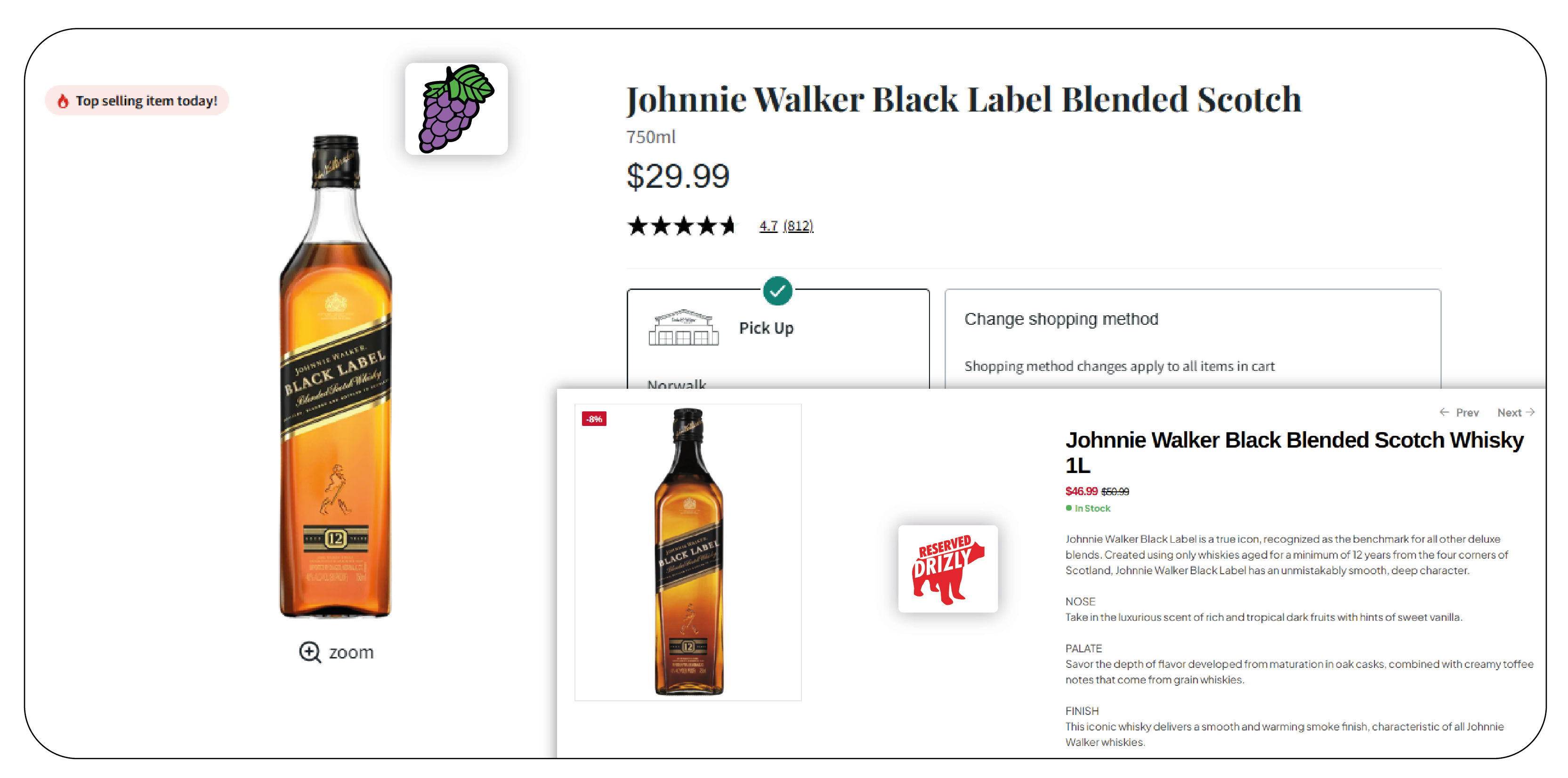
To better understand how liquor prices and quantities can differ, let's examine two popular online liquor retailers—Reserved Drizly and Total Wine. Both platforms are well-known for providing a wide variety of alcoholic beverages, but the prices and quantities for the same products can vary considerably.
Reserved Drizly:
Reserved Drizly is an alcohol delivery service with local liquor stores for fast delivery. Its pricing model often reflects local taxes, delivery fees, and regional pricing strategies. One of the critical features of Reserved Drizly is its on-demand delivery service, which is generally priced higher than platforms without such services.
For example, a bottle of Johnnie Walker Black Label(750ml) may be listed on Reserved Drizly for $35, including delivery fees, depending on the user's location. However, this price can fluctuate based on the region, available discounts, and even the specific liquor store partnered with Reserved Drizly in that area.
Total Wine:
On the other hand, Total Wine is a well-established retail chain that operates both physical stores and an online platform. While it does not offer the same on-demand delivery service as Reserved Drizly, Total Wine typically offers competitive prices on liquor, including discounts for bulk purchases.
On Total Wine, the same Johnnie Walker Black Label(750ml) might be priced at $32 without any delivery fees, but this price might not include taxes depending on the customer's location. If a customer purchases in bulk, Total Wine might offer a discount, lowering the price.
Addressing the Variations with Customized Web Scraping
The price and quantity discrepancies between Reserved Drizly, Total Wine, and other liquor retailers are not uncommon. These variations can significantly challenge consumers and businesses trying to make the best purchasing decisions or track competitive pricing. This is where customized web scraping comes into play.
How Customized Web Scraping Helps?
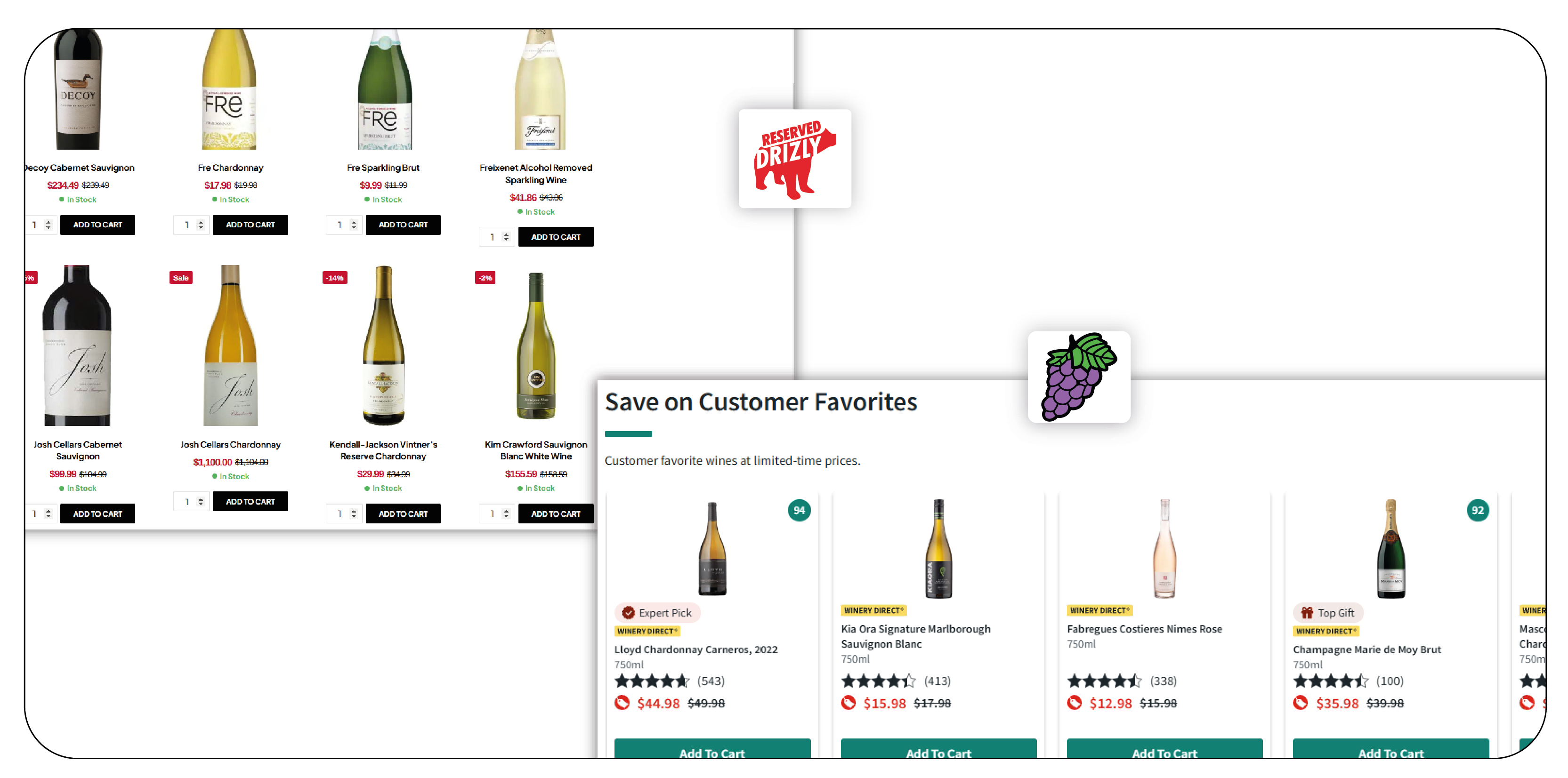
Web scraping is the process of extracting large amounts of data from websites. Regarding liquor price and quantity comparison, web scraping can automate the collection of price, quantity, product availability, and promotional data from multiple liquor stores and platforms. Businesses and consumers can gain valuable insights into pricing trends, availability, and competitive offerings by creating custom scraping scripts.
Customized Reserved Drizly Product Data Scraping Service allows for the collection of data tailored to specific needs. For instance, a business may want to track specific liquor brands, quantities, and prices over time to optimize its pricing strategy. It can use customized web scraping to monitor competitors' pricing regularly and make adjustments to remain competitive. On the consumer side, individuals can use scraping tools to quickly compare prices across platforms, ensuring they get the best deal.
In the case of Reserved Drizly and Total Wine, Customized Reserved Drizly Product Data Scraping Service would allow users to track the real-time prices of liquor products across both platforms and identify price discrepancies. It would also help businesses monitor which quantities are available on different websites and whether exclusive offers or discounts are provided. Similarly, Total Wine Price and Quantity Data Extraction can monitor specific product listings on Total Wine, ensuring businesses or consumers can access the most up-to-date pricing and availability data. This level of detailed analysis is made possible through Personalized Data Scraping for Alcohol Pricing Analysis, which ensures that data is collected according to specific business or consumer needs.
How does Product Data Scrape Help Scrape Liquor Price and Quantity Data?
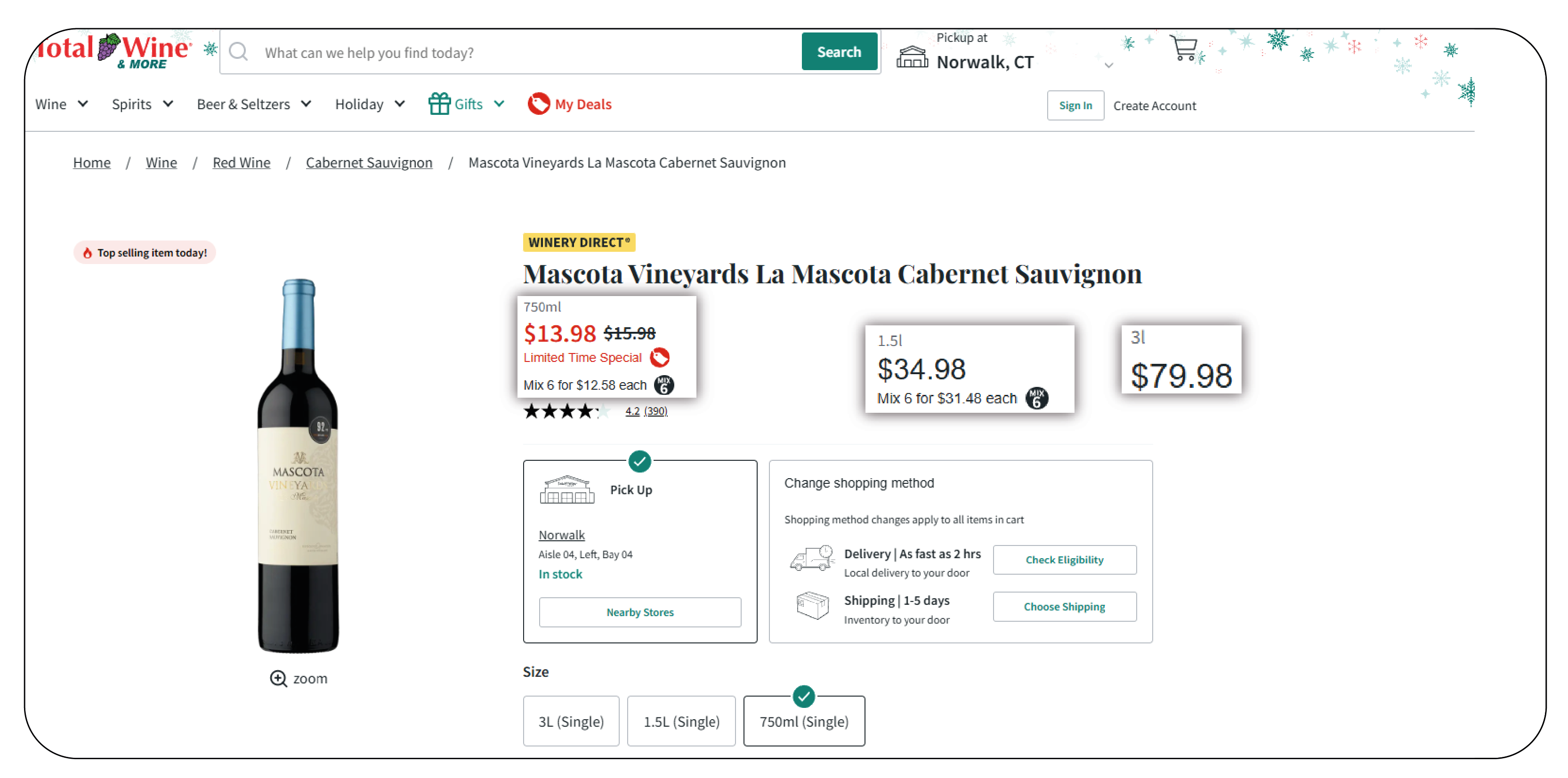
Product Data Scrape offers specialized services that can efficiently collect liquor price and quantity data from multiple websites for businesses or individuals looking to use customized web scraping. Leveraging advanced scraping tools and techniques ensures that the extracted data is accurate, timely, and relevant.
The team of experts can create customized scraping solutions tailored to a business's specific needs. Whether a company wants to track price fluctuations, monitor competitor pricing strategies, or analyze inventory availability across different platforms, it provides high-quality, real-time data collection services that help businesses make data-driven decisions. The company's services extend beyond liquor data and cover various sectors, including food and beverage, retail, and e-commerce.
For businesses seeking to stay competitive, Real-Time Liquor Product Quantity Comparison is critical to monitoring stock levels and identifying potential opportunities for price adjustments. Custom Alcohol Price Monitoring Data Collection enables businesses to track price fluctuations and competitor strategies, helping them refine their pricing models. Additionally, Automated Price and Quantity Data Scraping for Liquor allows businesses and consumers to access up-to-date information on liquor prices and stock availability, ensuring they can make informed purchasing decisions quickly.
Conclusion
In conclusion, customized web scraping can address the challenge of comparing liquor prices and quantities across platforms like Reserved Drizly and Total Wine. Using web scraping tools, businesses and consumers can gather valuable data, make informed decisions, and keep up with dynamic market trends. Companies provide the necessary expertise to ensure accurate and efficient scraping of liquor price and quantity data, helping businesses stay competitive in the fast-paced e-commerce environment.
At Product Data Scrape, we strongly emphasize ethical practices across all our services, including
Competitor Price Monitoring and Mobile App Data Scraping. Our commitment to transparency and
integrity is at the heart of everything we do. With a global presence and a focus on personalized
solutions, we aim to exceed client expectations and drive success in data analytics. Our dedication to
ethical principles ensures that our operations are both responsible and effective.







































.webp)






